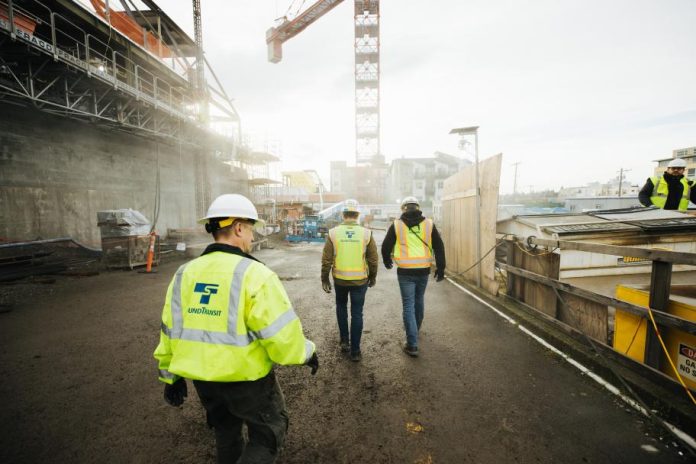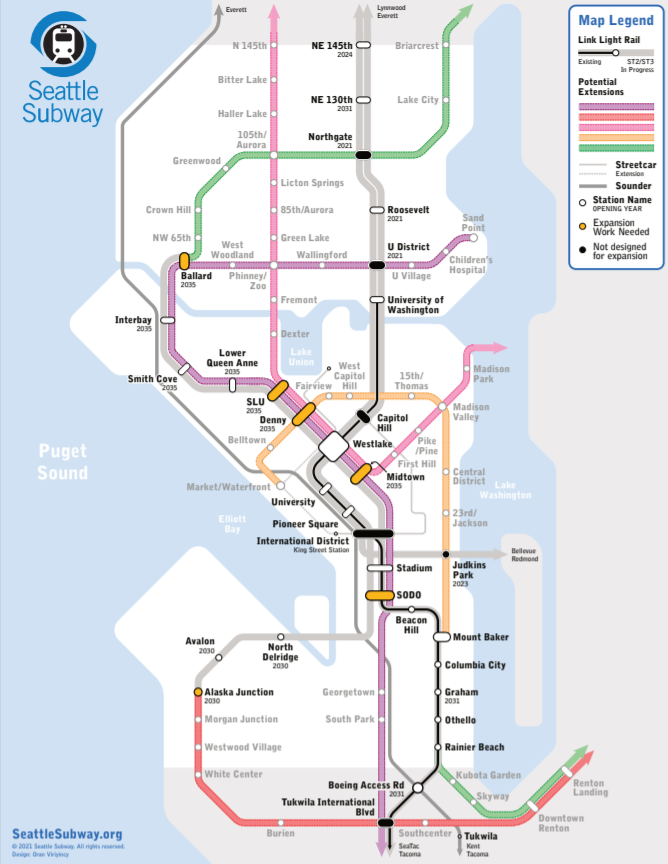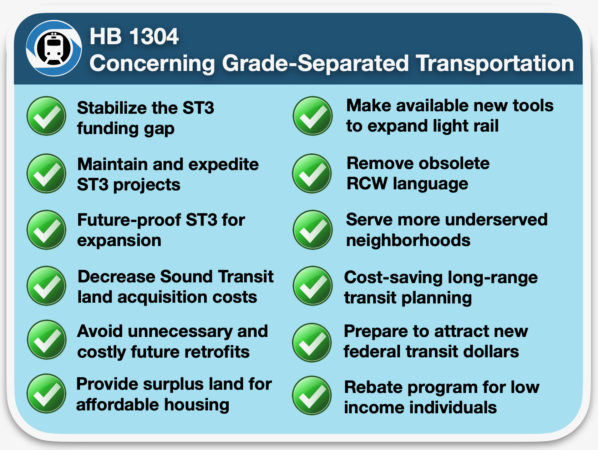
Rapid transit help could be on the way for Seattle. House Bill 1304, a bill to enable local rapid transit funding, has its first hearing scheduled on Tuesday, February 9th in the House Local Government Committee.
Shaun Kuo covered the proposal when author Representative David Hackney (D-11th Legislative District) first dropped the bill; we estimate the changes made to the City Transportation Authority (CTA), which was formerly used for ill-fated monorail expansion plans, could allow Seattle to raise more than $500 million per year once authorized by a citywide vote. That money would be spent expediting and adding new grade-separated transit.
Seattle Subway has provided a useful step-by-step guide to submitting testimony:
- Click here to submit testimony
- Select Committee: “Local Government”
- Select Meeting: Select “2/9/2021 10AM”
- Select Agenda Item: “HB 1304 Grade Separated Transport”
- Select type of testimony: “I would like to submit written testimony.”
- You will be sent to another page.
- Select Position: “Pro”
- Fill out your information
- Write your testimony (limit 5000 characters)
- Submit Testimony
It only takes a minute to register as “pro” and leave a brief comment.
This potential funding source comes at a time of high need; earlier this month, Sound Transit revealed $4 billion worth of projected cost increases for Seattle’s Sound Transit 3 (ST3) light rail projects. The agency attributed the jump to rapidly escalating construction costs across the region and skyrocketing real estate prices in station areas. Without intervention to add revenue and control costs, significant delays to the delivery of ST3 light rail projects are likely. That’s why we must act.
The new revenue source could help Seattle ensure the stations promised in the ST3 ballot measure are built in a timely fashion and turn to expanding the system, with Seattle Subway eying extensions of the Ballard Link to the northeast, West Seattle Link to the south, and the additions an “E” light rail line along Aurora Avenue, among others (see map below). While an amended CTA can’t single-handedly build the Seattle rail map of our dreams, it would allow Sound Transit to begin planning expansions and building existing lines to fit those future plans rather than plodding along without a long-term vision and making blunders that require expensive retrofits later.

Beyond stabilizing ST3 budgets, Seattle Subway has enumerated 11 other benefits they see HB 1304 providing.
- Stabilize the ST3 funding gap;
- Maintain and expedite ST3 projects;
- Future-proof ST3 for expansion;
- Decrease Sound Transit land acquisition costs;
- Avoid unnecessary and costly future retrofits;
- Provide surplus land for affordable housing;
- Make available new tools to expand light rail;
- Remove obsolete RCW language;
- Serve more underserved neighborhoods;
- Cost-saving long-range transit planning;
- Prepare to attract new federal transit dollars;
- Rebate program for low-income individuals.
Seven legislators are signed on the bill thus far. Democratic Representatives Liz Berry (36th Legislative District), Joe Fitzgibbon (34th), Frank Chopp and Nicole Macri (both of the 43rd), Steve Bergquist (11th), and Gerry Pollet (46th) have signed on to Rep. Hackney’s bill as co-sponsors.
We encourage you to comment on the bill to ensure Seattle continues to build the sustainable transit-rich future we deserve.
Update: This article has been updated to reflect that HB 1304’s first hearing has been pushed back a week to February 9th instead of February 3rd. Tentatively still 10am but we’ll update as needed.
Doug Trumm is publisher of The Urbanist. An Urbanist writer since 2015, he dreams of pedestrian streets, bus lanes, and a mass-timber building spree to end our housing crisis. He graduated from the Evans School of Public Policy and Governance at the University of Washington in 2019. He lives in Seattle's Fremont neighborhood and loves to explore the city by foot and by bike.


